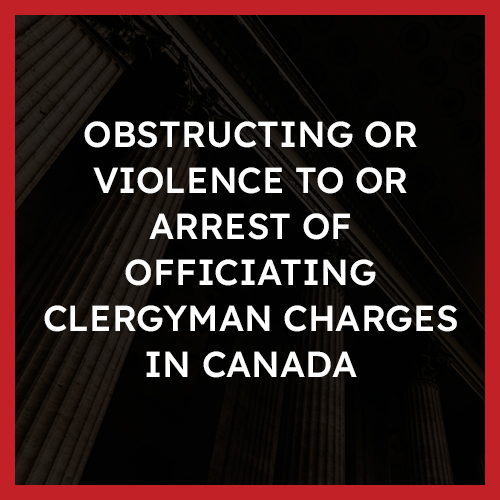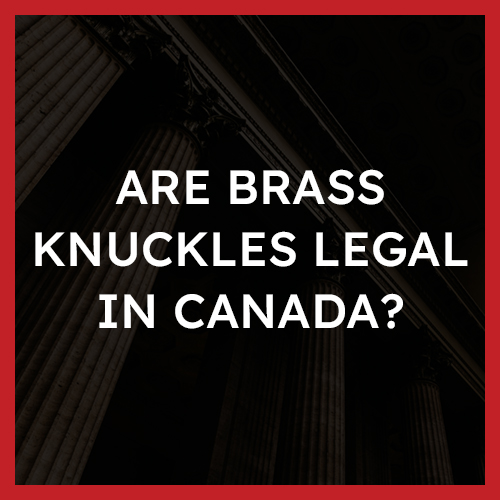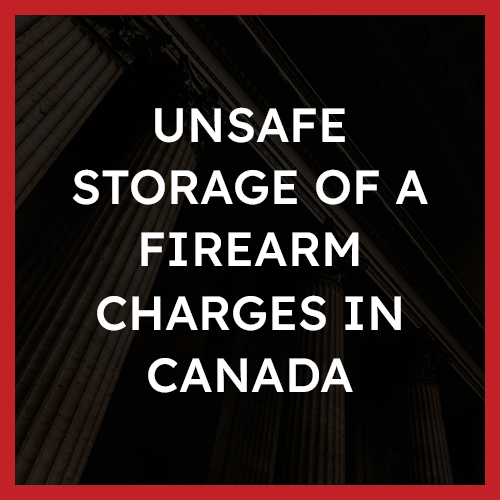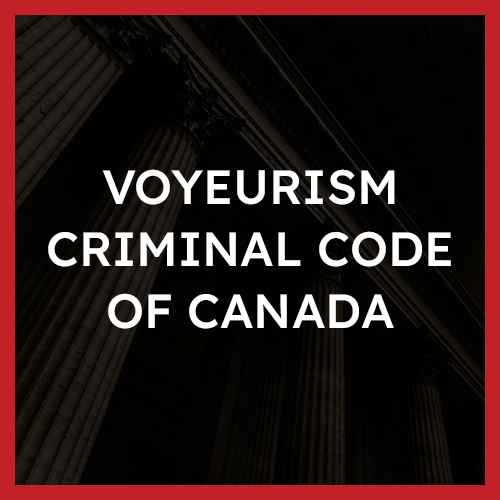Obstructing or Violence to or Arrest of Officiating Clergyman Laws in Canada Explained
What is an obstructing or violence to or arrest of officiating clergyman charge?

An obstruction or violence to or arrest of officiating clergyman charge occurs when a person obstructs or attempts to obstruct an officiant from celebrating a religious, spiritual or other function through threats or force. Alternatively, an obstruction or violence to or arrest of officiating clergyman charge can occur when a person assaults, applies violence to, or arrests the officiant. This section thus aims to protect religious freedoms of Canadians by criminalizing interference with religious expression.
Obstructing or violence to or arrest of officiating clergyman is a hybrid offence with Crown election. This means that depending on the circumstances of your case, the Crown can elect to proceed by indictment or summarily. If an accused is prosecuted by indictment, there is a Defence election of court under s. 536(2.1) of the Criminal Code.
Examples
Some examples of an obstructing or violence to or arrest of officiating clergyman charge may include the following:
- A person punches a pastor preaching at church;
- A person threatens an imam during Friday prayer at a mosque; and
- A person unlawfully arrests a rabbi.
Defences
The defences available for an obstructing or violence to or arrest of officiating clergyman charge are entirely dependant on the facts of your case.
However, some defences to an obstructing or violence to or arrest of officiating clergyman may include the following:
- The clergyman is not performing a function in relation to their calling;
- No obstruction occurred;
- The obstruction or arrest was lawful;
- The accused was wrongly identified; or
- The accused’s Charter rights were violated.
Punishments
An obstructing or violence to or arrest of officiating clergyman charge is a hybrid offence which entails a maximum punishment as follows:
- Imprisonment for a term not exceeding two years.
Punishments for an obstructing or violence to or arrest of officiating clergyman charge depend on if the Crown elects to pursue the charge as an indictable offence or summarily. There are no mandatory minimum penalties for this offence. The maximum is no more than 2 years of incarceration if prosecuted by indictment. If prosecuted summarily, the maximum punishment is no more than 6 months of incarceration and/or a $5,000 fine.
An obstructing or violence ro or arrest of officiating clergyman charge also entails severe consequences for current and future employment opportunities and immigration status.
Have you been charged with Obstructing or Violence to or Arrest of Officiating Clergyman?
Our experienced team of criminal defence lawyers is standing by to help you fight the charge. Contact us today for a free, no-obligation consultation to discuss the specifics of your case and craft a formidable defence.
Overview of the Offence
According to s.176(1) of the Criminal Code:
176 (1) Every person is guilty of an indictable offence and liable to imprisonment for a term of not more than two years or is guilty of an offence punishable on summary conviction who
(a) by threats or force, unlawfully obstructs or prevents or endeavours to obstruct or prevent an officiant from celebrating a religious or spiritual service or performing any other function in connection with their calling, or
(b) knowing that an officiant is about to perform, is on their way to perform or is returning from the performance of any of the duties or functions mentioned in paragraph (a)
(i) assaults or offers any violence to them, or
(ii) arrests them on a civil process, or under the pretence of executing a civil process.
The Guilty Act (Actus Reus)
The actus reus for an obstructing or violence of or arrest of officiating clergyman charge under s.176(1) is established by proof, beyond a reasonable doubt, of the following:
- The accused obstructs or endeavours to obstruct a clergyman;
- The clergyman is conducting a function in connection with their calling; and
- The obstruction occurs through threats or force.
OR
- The officiant is about to perform or is on their way to perform their duties; and
- The accused assaults or applies violence to the officiant.
Note that assault has a separate set of elements that must be proven to find someone guilty beyond a reasonable doubt. Please view our article on assault for more detail.
OR
- The officiant is about to perform or is on their way to perform their duties; and
- The accused arrests them under civil process or the pretence of executing a civil process.
The Guilty Mind (Mens Rea)
The mens rea for an obstructing or violence of or arrest of officiating clergyman charge under s.176(1) includes proving, beyond a reasonable doubt, that:
- The accused had no lawful excuse for obstructing, violence or arrest of a clergyman.
OR
- The accused had knowledge that the officiant was going to perform.
Defences
How to Beat an Obstructing or Violence to or Arrest of Officiating Clergyman Charge
Every case is different. The availability and strength of any defence depend entirely on the specific facts of your case. The strength of any available defence rests on the evidence against you and the precise details of the allegations. However, the following are some common defences that may be used when fighting an obstructing or violence to or arrest of officiating clergyman charge.
Officiant Is Not Performing
One required element for 176(1)(a) is that the clergyman is performing a service that falls under their profession. If the clergyman is not performing this service, or is performing a service unrelated to their profession, one of the essential elements of the offence would be unable to be proven, making the accused not guilty of obstructing or violence to or arrest of officiating clergyman.
No Knowledge
Similarly, to the above defence, a possible defence to an obstructing or violence to or arrest of officiating clergyman charge is the accused having no knowledge that the clergyman was performing. S. 176(1) protects religious freedoms by protecting the performance of religious services. Thus, if the accused had no knowledge that a religious service was going to be performed, they would be unable to meet the mens rea requirement outlined for section 176(1)(b).
Lawful Excuse
The mens rea requirement for section 176(a) requires no lawful excuse for the actions of the accused. If the accused had reasons to interrupt the religious ceremony, the Crown may fail to prove this element of the offence in court, resulting in a finding of not guilty.
No Obstruction
S. 176(1)(a) requires that the accused obstruct the clergyman. If the accused’s actions do no obstruct the clergyman from performing their services, the Crown may be unable to prove an essential element of the offence, making the accused be found not guilty of an obstructing or violence to or arrest of officiating clergyman charge.
Identity
Depending on the circumstances of your case, a possible defence to an obstructing or violence to or arrest of officiating clergyman charge may be to raise an identity defence. In this case, for this defence to be raised successfully, you will have to prove that you were not the person who obstructing the clergyman in the particular incident.
Any Applicable Charter Defences
The Charter sets out your rights and freedoms before and after your arrest. If the police fail to abide by these rights deliberately or inadvertently, it could aid in your defence. If any of your Charter rights have been violated before or after your arrest, you may be able to have some or all of the evidence that the Crown is relying on to secure a conviction excluded under s. 24(2) of the Charter.
Punishments
The Criminal Code provides for a possible maximum term of imprisonment of no more than 2 years for those convicted of an obstructing or violence to or arrest of officiating clergyman charge. If the Crown proceeds summarily, the maximum punishment is no more than 6 months of incarceration and/or a $5,000 fine.
Persons found guilty an obstructing or violence to or arrest of officiating clergyman charge are eligible for sentencing entailing a discharge, suspended sentence, stand-alone fine, custody, custody with a fine or probation or a conditional sentence order.
Frequently Asked Questions
Can you go to jail for obstructing or violence to or arrest of officiating clergyman?
If you are found guilty of obstruction or violence to or arrest of officiating clergyman, you can go to jail. If the Crown proceeds by indictment, an obstruction or violence to or arrest of officiating clergyman charge carries a maximum sentence of no more than two years in jail. If prosecuted summarily, the maximum punishment is no more than 6 months of incarceration and/or a $5,000 fine. Therefore, there is a possibility that you can go to jail for a obstruction or violence to or arrest of officiating clergyman charge.
What is the maximum penalty for obstructing or violence to or arrest of officiating clergyman?
The maximum penalty for an obstruction or violence to or arrest of officiating clergyman charge will vary depending on whether the Crown proceeds summarily or by indictment. If the Crown proceeds by indictment, an obstruction or violence to or arrest of officiating clergyman charge carries a maximum sentence of no more than two years in jail. If prosecuted summarily, the maximum punishment is no more than 6 months of incarceration and/or a $5,000 fine.
Is obstructing or violence to or arrest of officiating clergyman an indictable offence?
Obstruction or violence to or arrest of officiating clergyman is a hybrid offence. This means that the Crown can choose to proceed summarily, or by indictment. If the Crown proceeds by indictment, a obstruction or violence to or arrest of officiating clergyman charge carries a maximum sentence of no more than two years in jail. If prosecuted summarily, the maximum punishment is no more than 6 months of incarceration and/or a $5,000 fine.
Published Decisions
Sisk v Edmonton (Police Commission), 2015 ABLERB 16
The complainant in this civil case alleged that the police office mishandled themselves by failing to arrest the Prime Minister for what the complainant viewed as an unlawful interference with the use of cannabis in religious rituals. The written decision for this case confirms the mens rea for s. 176(1) by confirming that unlawful obstruction is required. Further, this case clarifies that section (a) has an actus reus requirement of threats. It was found that the passage of a law preventing the use of cannabis in rituals does not fall under section 176(1).
You can read the full written decision here
R v Wagner, 2015 ONCJ 66
This case examined the definition of force, which the accused argued is not limited to physical intervention. The written decision for this case confirms that the actus reus requirement for s. 176(a) requires force or threats of force, as opposed to 176(2) and (3), which focus on disturbance. This clarifies the need for force to be present for a guilty verdict to be found. The case confirms that force was meant to involve physical violence.
You can read the full written decision here.
Contact Us
If you have been charged with a criminal offence, visit our location pages to contact our team.
About The Author
Ask A Question
We endeavor to respond to questions within 24 hours. If your matter is urgent, please call our office or submit a request for a free consultation.







